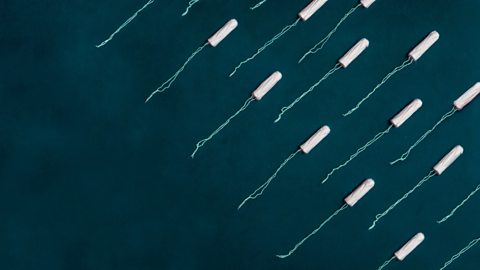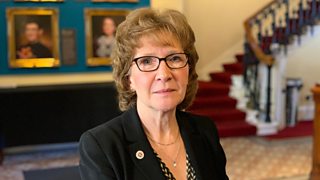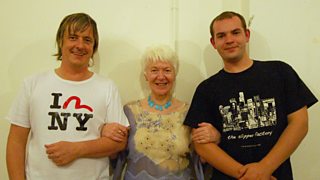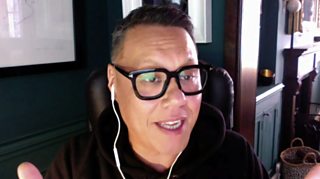If we don't talk about periods how can we know what's 'normal'?
Open conversations about periods are rare but, according to a menstrual health expert, it's time to talk.
Given they affect a large percentage of the population, public conversations about periods are surprisingly rare. It remains a taboo subject because some feel a sense of embarrassment or discomfort discussing their monthly cycles.
But if we’re not sharing our experiences of symptoms, side effects and flow, how are we to know whether our periods are normal, or whether we should seek help?
Speaking on Brainwaves menstrual health expert Professor Hilary Critchley reveals she is well aware of the uncertainties surrounding what is considered to be normal.

What is a 'normal' period?
Professor Hilary Critchley reveals how much blood is usually lost during a period.

“The usual amount of blood loss for a normal period is 35 mls,” says Professor Critchley.
To visualise this amount she suggests picturing a medicine cup of the kind included with a bottle of cough mixture. Losing more than the standard 35 mls can cause health problems to arise.
Professor Critchley continues: “If you double that, that’s the amount you lose to become anaemic,".
"People don’t realise that one of the biggest causes of anaemia and iron deficiency in women is heavy menstrual bleeding — far greater than nutritional causes or the anaemia you get in pregnancy.”
Some women lose an astonishing amount of blood during their cycle; Professor Critchely's patients can lose up to 450 mls.
"That is equivalent to any one of us taking a visit each month to our local blood donor service," she says. "It’s no wonder our patients are tired and anaemic."
Women are having more periods
Professor Critchley believes we should start having frank conversations about menstrual cycles. Doing so would help us understand them better, and could assist the medical profession in finding solutions for related problems.
Now seems as good a time to talk as any, because women are having more periods than their ancestors did.
Contraception has allowed women to control when to have a family and how large it should be. It's a huge change from our great grandmothers' era, according to Professor Critchley.
"[In those days] women were either pregnant, when you don’t menstruate, or breastfeeding, when you don’t menstruate, and family spacing was very close together, " she says.
"Nowadays, if family size is only one, two or perhaps three, then you’re going to have far more periods. So women nowadays will have 400 periods. A woman in the past would have had 40.
"Women now are in the workforce and that makes it much less easy to manage. We need to remove shame about [periods]; we need to see it as an absolutely amazing natural event."
-
![]()
Brainwaves: Talking taboo by getting personal about periods!
Expert on menstrual health Professor Hilary Critchley and staff and students from Edinburgh University join Pennie Latin for a bold and brave conversation about periods.
Latest features from 91�ȱ� Scotland
-
![]()
'Wild swimming helps me process the grief of losing my son'
The benefits of cold water therapy.
-
![]()
Winter adventures are appealing, but an expert advises caution
Trips in winter require particular knowledge and skills.
-
![]()
The rescuers: Why volunteers risk their lives in mountain emergencies
Landward meets members of the Cairngorm Mountain Rescue Team.
-
![]()
‘Look for the light’ – practical tips to help you through another winter with SAD
Useful advice and tips to combat low moods at this time of year.
-
![]()
How you could be a binge drinker without even knowing
Binge drinking is classed as fewer units than many people may realise.
-
![]()
How chocolate biscuits and drama classes helped one man leave prison behind
The healing power of creativity.
-
![]()
'When people believe in you, it’s life-changing'
Author Graeme Armstrong revisits the man who helped turn his life around.
-
![]()
The 'breath-taking' display of US birds swept on to British soil
Recent storms have brought rare birds to our shores.
-
![]()
Six things we learned about Alan Cumming on Take the Floor (Spoiler: includes accordions)
The actor spoke to Take the Floor's Gary Innes.
-
![]()
How street gangs trap young men in a dangerous cycle of violence
The almost inescapable pull of life in a gang.
-
![]()
Why stylist Gok Wan believes there's no such thing as bad fashion
The fashion expert says we should stop following rules and do what feels right.
-
![]()
Is sending a CV still the right way to apply for a job?
They've been central to job applications for years, but are they worth it?




















